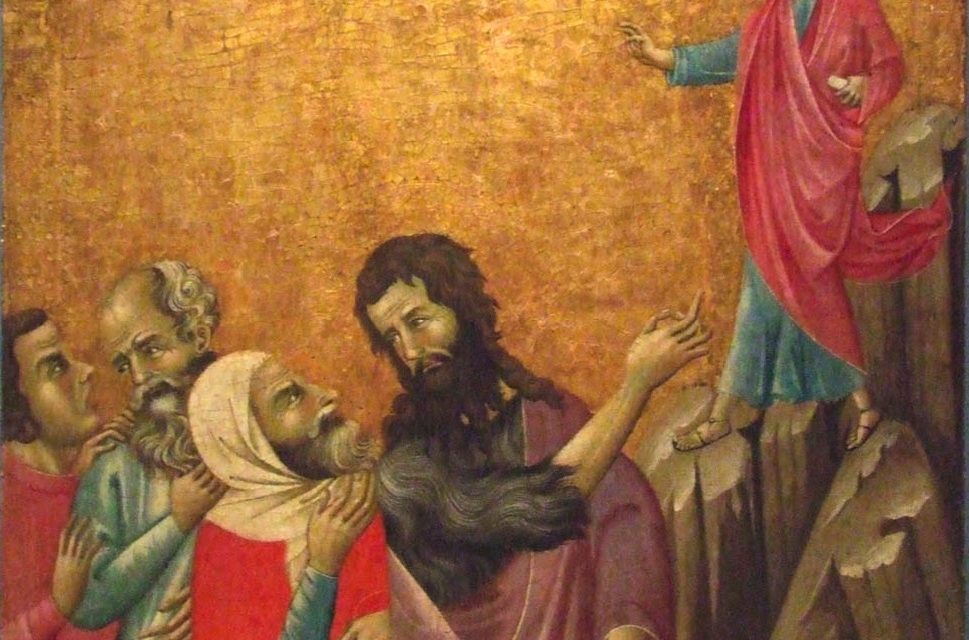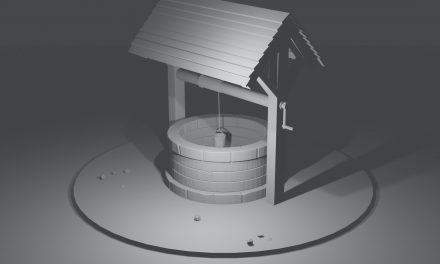There are two things in this Sunday’s readings that may be difficult for us to put together. We can see both in the reading from Isaiah. On the one hand, the reading starts out with some tough talk: the shoot from Jesse’s stem – i.e. the coming ruler – “shall strike the ruthless with the rod of his mouth, and with the breath of his lips he shall slay the wicked. Justice shall be the band around his waist, and faithfulness a belt upon his hips.” Here is the language pointing forward to the appearance of John the Baptist in the Gospel, who does no little striking with the rod of his mouth against the “brood of vipers” of the Pharisees coming to see him.
But then, the Isaiah reading changes to a remarkable set of images of peace. Even calling them utopian is a stretch; it’s not that they represent ideal human behavior but a condition in which all conflict in all creation is put to an end. The lion and the lamb lie down, the child plays by the adder’s nest: this isn’t something we can manage to achieve, if only our moral actions are just and righteous! Today’s psalm describes this “fullness of peace forever more” in the same terms that Isaiah does initially: judgments of justice and salvation for the poor and afflicted, linking these to “signal to the nations” theme in Isaiah. The Gospel is less loquacious about this salvific judgment, but note that prior to the critique of the Pharisees, there is a general statement about how people were repenting and being baptized in response to John’s announcement. In Luke, we are told a little more about this: people start sharing their possessions, soldiers stop harassing people and extorting bribes, etc. It’s not quite the lion and the lamb – but it’s moving in that direction. So we do have to start acting in a certain direction, even if that doesn’t quite bring about the complete peace God is truly promising.
My sense is that, often enough, we want the vision of peace and not the tough talk. We want to celebrate the “little child” that will lead them, but not hear about his words that “strike the ruthless.” We may even replicate (in reverse) the assumption of the Pharisees: we are not the ones who need repentance, only those bad (pharisaic!) types. The Advent message that binds the vision of peace and the threatening words of judgment is best seen, I think, in these vivid words of John the Baptist:
Produce good fruit as evidence of your repentance….
Even now the ax lies at the root of the trees.
Therefore every tree that does not bear good fruit
will be cut down and thrown into the fire.
We should be reminded that the Greek word translated “repentance” is really a matter of amending your vision. Repent really means “change your outlook on everything.” But how can we tell if we really have a changed outlook or if we are just going to see John out of curiosity? The evidence is in the fruits. The “tree of Jesse” is not enough to assure you in the face of the judgment – whether the final one or simply the one enacted in the first coming of Christ. What matters is that your changed outlook produces good fruit. It will not, in fact, be sufficient to get us to the holy mountain of complete peace. But we won’t participate in the holy mountain’s magical peace without producing good fruit – the good fruit meaning justice, forgiveness, rescuing the afflicted, ec. And, in the spirit of Advent urgency, we are reminded that “even now the ax lies at the root of the trees.” If we’re not producing much good fruit right now, it’s time to make the changes in outlook needed so that we can!




